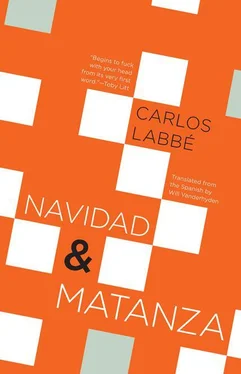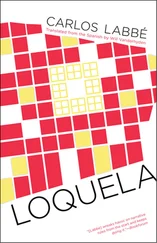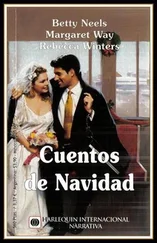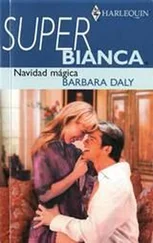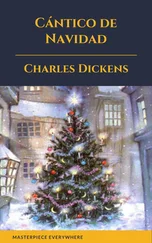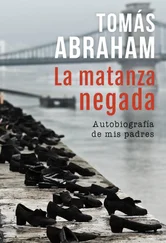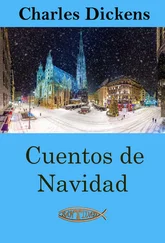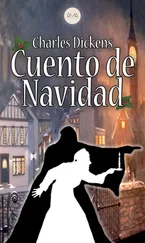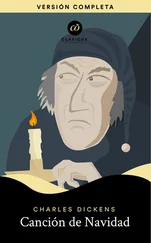Alicia Vivar left music behind. When she was ten years old she stopped attending violin class. Instead, according to her classmates, she became interested in rhythmic gymnastics and field hockey. On the topic, Carmen Riza claims to not understand the change, because “the girl had a special ear. It was a loss for the class.” But what could Alicia Vivar’s musical activities have to do with her disappearance? That is something I can only illustrate with a personal anecdote.
Eight years ago, for no particular reason, I attended a performance by the Santiago College violin class. I went in and sat down without knowing why. It was a Friday afternoon in mid June; it was very cold and the days were passing quickly. I’d recently gotten my degree in journalism and I was looking for a job. Many other things had, regrettably, become much less important. One of those things was fun, just fun, in the abstract, without adjectives or adverbs. What I’d call now, from a certain distance, pleasure. I enjoyed writing stories, novels, poetry, letters to women, Greek comedies, scripts for documentaries. I also enjoyed talking about my writing and the writing of others. To that end, five friends of similar interests and I had come up with a system that, in the beginning, seemed like an original and fascinating discovery. A novel-game. In short, it involved rolling dice, moving your token to a space with prefigured plotlines and formal constraints, writing a text according to those constraints and, that night, mailing this text to the other participants. Everyone had been assigned a day of the week, except Sunday, a day of rest. It was a game of complex rules and seduction. And the result was out of control. However, weeks passed and participants started deserting, for various reasons that were occulted by shame, that “crossroads of love and fear,” in the words of a little-known French philosopher we were reading at the time. Already three of my friends — those assigned Monday, Wednesday, and Friday — had stopped participating in the novel-game. A fourth had announced an upcoming trip to New York. We had to decide what was going to happen to the project in light of these desertions.
We decided to meet that Friday, at four in the afternoon, at the Youth and Children’s Book Fair, which in those days was held at the Parque Bustamante, in Providencia.
I got there half an hour early. The place was overflowing with red and blue balloons. There were clowns, and people dressed as characters from fairytales, and techno music. I passed by the various editorial stands. At the Pehuen stand, for five hundred pesos, I bought an anthology of contemporary Canadian poets, which interested me because of the inclusion of Margaret Atwood, one of my favorite novelists at that time. I looked at my watch: it was already four fifteen and no one else had arrived. Then over the loudspeaker they announced that in five minutes the Santiago College violin class would be performing in the amphitheater. I walked toward the venue, deciding to pass the time in one of the plastic chairs. To my left, two mothers were taking pictures; to my right, a little brown-haired girl whose feet didn’t reach the floor was applauding soundlessly. On the stage there were three rows of young violinists. Behind them, sat more than fifteen prepubescent girls, whispering, their cheeks burning with embarrassment; they were part of the choir that would accompany the violinists on their last song.
The audience was almost entirely made up of children from different schools, carefree, eating cotton candy. There were some teachers, parents and other relatives who were filming and photographing the musicians. Except for me, lifting my head every five minutes to look around for one of my friends, the only person out of place was a very elegantly dressed man. He stood for the entire performance, arms crossed, wearing dark sunglasses, and a smile that appeared every time the third girl in the second row frowned or glanced at him. I don’t remember much about her; she wasn’t striking. She was just another girl among those strange, six-year-olds: hair pulled back in a ponytail, thin hands vibrating with the bow, cold face angled over the wood surface of the little violin. The teacher shouted instructions that only the children could hear. F, up down, bow to the audience, next, remember Caro, you begin, louder Alicia. The last song was announced: This is the Song of Sand, thank you. One three-year-old girl, dressed ridiculously in green, took two steps forward, looked with disturbing seriousness at the teacher, placed the violin under her chin. She waited for two chords from Carmen Riza’s electric piano before she began to move her bow. A clean sharp sound lead into a scale, across which the entire section of children’s violins joined together in something that sounded to me like Schubert, but sadder, and sicker. Like a child who imagines the music of Schubert after he has learned about Schubert’s biography. That’s how I felt. I don’t know if they were already there, but all of a sudden I noticed that the floor of the stage was covered with pink balloons. In the final crescendo, when the choirgirls stood up and sang, a string on the violin of the little girl alone in the front row broke. Applause erupted. In that moment, without taking the violin from her shoulder, the girl in the second row — who I know now was Alicia Vivar — was the only performer who didn’t bow. All alone, she lifted her foot and kicked one of the balloons off the stage, right at the man dressed in the elegant suit, who uncrossed his arms to catch the balloon. I stood, looking at the stage. And in the confusion of congratulating mothers, crying children, and people running from one side to the other, I watched as the girl walked calmly down the steps, went up to the man, and took his hand. He bent down and kissed her cheek. The man was around thirty years old, my age now, I realize. Watching them, I knew where I’d be eight years later, what story I’d be writing right now at my computer. His name was Boris Real. I’m certain that Alicia never composed a single song for the violin. The scores Alicia gave to her teacher were written by Boris Real so that she could perform them. Gifts, you might say. That afternoon they left the Youth and Children’s Book Fair holding hands. I felt dirty for what I thought in that moment, and I feel dirty for thinking it now: twenty-four years separated the two of them.
WE STOPPED THE CAR at a service station along the highway. We got out to buy a big bottle of ginger ale and took the opportunity to call home. When mother answered we were silent until she started to cry. Then we cried too, and she listened. She always listens though she knows we’ll say nothing. Sometimes she laughs, out of pleasure we imagine, because she feels less alone. Then we hang up. It’s been twenty-nine years; we’d love to see her. But not father.
We paid the service station attendant to wash the windshield with that tool that collects everything but the last bit of foam. As his face appeared in a corner of the glass, he looked shamelessly inside, and we asked each other if we should make faces at him or direct our gaze toward the infinite. Later we rewrote my last poem, we added an attention grabber, “you remember,” which we didn’t know if we’d keep. We always do that, add something or remove something when we’re bored. Or we read a strange novel aloud, with a flashlight, as we drive through the night. And later we discuss over and over what it was all about.
This was the poem:
DOLLHOUSE
When I’m not looking he comes toward me, when I’m looking he stays over there, at a distance, watching me. If I could carry him alone into the silence without cracking my hands beneath the bark, between the bars, into the hole, open like a grave. And later we move away to a place where I’ve never been, opening myself in front of him, a telescope kept in an old shoebox, we see only a gray room without paintings or corners. It’s the dollhouse, you remember, out in the rain there live three bears who do not sleep because someone may be in one of their beds, who do not wake up because during the day they had to find honey, before it hardened, and they are tired.
Читать дальше
